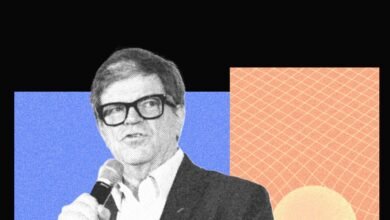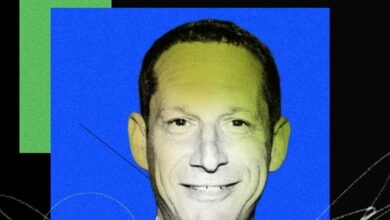The Truth Behind Peter Thiel’s Antichrist Obsession

▼ Summary
– Peter Thiel has been touring for two years discussing biblical doomsday concepts like the katechon and Antichrist with various interviewers.
– His ideas reveal how he perceives his influence in politics, technology, and humanity’s fate, rooted in his Girardian beliefs.
– Thiel argues that modern society is overly fearful of technology, leading to hostility toward innovation and cultural stagnation.
– He warns that attempts to unify humanity under one rule to avoid apocalypse could lead to the rise of the Antichrist, promising false peace and safety.
– Thiel believes humanity faces dual threats from technological disaster and the Antichrist’s regime, which could trigger civilization-ending violence.
For two years, billionaire investor Peter Thiel has been delivering a series of unconventional talks centered on biblical end-times prophecy and the figure of the Antichrist, captivating and confusing audiences in equal measure. His appearances with figures like economist Tyler Cowen and columnist Ross Douthat have explored obscure theological concepts, while a private, four-part lecture series in San Francisco delves even deeper into these themes. This intense focus from a leading tech mogul isn’t mere eccentricity; it reveals a foundational worldview that directly informs his actions in business, politics, and his outlook on humanity’s future.
To truly understand Thiel’s perspective, one must look back to a pivotal, unrecorded lecture he gave in Paris in 2023. The event took place at a conference for scholars of René Girard, the French-American theorist whose ideas Thiel passionately follows. In a modest lecture hall at the Catholic University of Paris, Thiel presented his nearly hour-long thesis on Armageddon to an audience of global philosophers and theologians. His central argument was that modern civilization is failing to prevent doomsday because it has become paralyzed by fear.
Thiel described our era as “listless” and “zombie-like,” characterized by a deep-seated hostility toward innovation, declining birth rates, an overabundance of spiritual practices like yoga, and a culture trapped in the repetitive cycle of the internet. He contends that in our frantic efforts to avoid technological disasters, such as nuclear war, environmental collapse, or uncontrollable artificial intelligence, we have made ourselves vulnerable to a far greater threat. This, in his view, is the rise of the Antichrist.
Drawing from certain Christian interpretations, Thiel posits the Antichrist as a unifying leader who promises global peace and safety, only to ultimately deliver apocalypse. He argued that this figure could gain power by exploiting our collective technological anxieties, seducing humanity into a state of decadence with the alluring promise of protection from catastrophe. In essence, the Antichrist would unite a terrified world by vowing to save it.
To illustrate his point, Thiel suggested that the philosopher Nick Bostrom could be a modern archetype of this dangerous figure. Bostrom, known for his concerns about AI, once proposed a global system of governance and technological restrictions to manage existential risks. Thiel sees this mindset, a single-minded focus on halting progress at any cost to achieve safety, as a potential pathway for the Antichrist’s emergence. He identified this sentiment not in one person, but as a pervasive trend among various influential people and institutions.
This creates a dire double-bind for humanity: we must navigate the genuine perils of technological advancement while simultaneously resisting the siren call of a false savior. For Thiel, the latter is the more terrifying prospect. Grounded in Girardian theory, which explores mimetic desire and scapegoating, he believes a global regime built on fear and the suppression of conflict would eventually lead to a catastrophic, pent-up release of violence capable of ending civilization. He expressed deep uncertainty about whether any restraining force, or katechon, could successfully hold back this tide.
When the lecture concluded, the moderator opened the Q&A by observing the profoundly grim nature of Thiel’s presentation. Faced with this apocalyptic forecast, the question posed to the billionaire was simple yet monumental: if the world is indeed racing toward a crisis of biblical proportions, what does he propose we actually do about it?
(Source: Wired)





